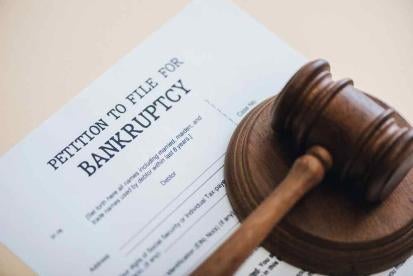Directors and officers should take note of a recent decision from the US Bankruptcy Court for the Southern District of New York concerning access to D&O insurance policy proceeds. In In re SVB Financial Group, Case No. 23-10367 (Bankr. S.D.N.Y. May 22, 2023)[1], the Bankruptcy Court found cause to lift the automatic stay to allow directors and officers to access the proceeds of SVB Financial Group’s (“SVB”) directors and officers (“D&O”) insurance policies to pay for legal costs incurred in responding to investigations and defending litigation. Moreover, it declined to impose a “soft cap” on the advance of defense costs.
Background of the Case
In SVB, to date, seven putative securities class actions have been commenced against certain officers and directors of the debtor, SVB. In addition, non-public regulatory investigations concerning the events leading up to SVB’s receivership and the role of SVB’s directors have been commenced.
Due to its bankruptcy filing, SVB informed the directors and officers who are defendants in the class action lawsuits that it could not advance any defense costs under its D&O liability insurance policies, and thus, the directors and officers had to seek payment directly from the D&O insurance policies to cover any defense costs. In order to do this, the directors and officers needed to obtain relief from the automatic stay. The stay prevents creditors and other entities from, among other things, taking action that could deplete assets owned by the debtor during the pendency of the bankruptcy. As such, sixteen of the debtor’s current and former directors filed a motion for relief from stay to obtain an order permitting the D&O insurers to advance defense costs associated with the class actions and investigations.
The unsecured creditors committee in the case objected to the motion, arguing that the insurance proceeds of the D&O policies were property of the estate and that advancing defense costs to the directors and officers would deplete the coverage available to the debtor. The committee further recommended imposing a “soft cap” on any defense costs advanced under the insurance policies. The soft cap would place a limit on the amount of proceeds the D&O policies could advance to directors and officers to use for defense costs. The cap is “soft” because the court would maintain some discretion in allowing directors to exceed the cap depending on the facts and circumstances.
SVB’s Insurance Policies
SVB has D&O liability insurance policies that provide $10 million of coverage under the primary policy and excess layers of insurance in an aggregate amount of $200 million. Importantly, the policies provide Side A, Side B, and Side C coverage. Side A coverage provides protection directly to directors and officers where a debtor has not indemnified, or will not indemnify, the directors and/or officers, Side B coverage allows for the debtor to receive reimbursement when it indemnifies a director or officer for costs associated with covered claims, and Side C coverage applies to any loss suffered by the debtor from securities claims made against it in its own right. The ABC policies also include a “Priority of Payments provision,” which provides for the payment of Side A coverage before paying Side B or Side C coverage. The effect of this provision is that the directors and officers have the right to be reimbursed under the policy before the debtor can access any coverage.
The Court’s Decision
Cause to Lift the Automatic Stay
The issue in SVB was whether the interests of SVB’s bankruptcy estate in the D&O policies outweighed the need of the directors and officers to access the D&O policy proceeds. The Court decided it did not have to determine whether the policies were the property of the bankruptcy estate because, regardless, cause existed to lift the automatic stay to allow the directors and officers to access the insurance funds. In so ruling, the court primarily looked to two primary reasons.
First, granting relief from stay would not substantially interfere with the bankruptcy case. Rather, the Court found that advancement of defense costs would benefit the debtor’s estate. Absent the assurance of insurance protection, the directors’ and officers’ attention would be diverted away from running the company to the detriment of the estate. The creditors’ committee argued that allowing the directors to access the insurance policies may deplete the amount available for the debtor to defend against claims asserted by other parties, burdening the estate with potential losses. However, given the priority payment scheme, the directors and officers were entitled to the insurance proceeds before the debtor could access the funds. As a result, it was the directors’ and officers’ right to make claims under the policies and to receive insurance proceeds before the debtor. Therefore, the Court concluded that allowing them to exercise this right would not interfere with the bankruptcy case.
Second, the Court found that the balance of harms favored lifting the automatic stay. Any insurance proceeds SVB would need in the future was speculative, and the actual harm the directors and officers currently faced outweighed any speculative harm. The committee argued that the insurance policies in this case were “wasting policies” because the proceeds used for the defense of the directors and officers would deplete the proceeds that could be used to settle judgments. In rejecting this argument, the court held that since the directors and officers were entitled to be paid first under the priority scheme, the fact that the policies may be “wasting policies” was not relevant.
No “Soft Cap” on Defense Costs
The Court lastly declined to impose the creditor committee’s suggested condition of a “soft cap” on defense costs advanced under the insurance policies. In finding no legal basis to impose a soft cap, the Court acknowledged that there was past precedent implementing a soft cap on defense costs. The Court opined that SVB was different than past precedent because under SVB’s D&O policies, some coverage could not be accessed by the debtor and the rest of the coverage was likely to not be utilized given the priority payment provision.
The committee warned that the “floodgates” would open if the court refused to impose the soft cap. The Court disagreed, noting that the insurance policies themselves provided a check on fees and expenses of attorneys. In addition, the Court mandated quarterly reporting to monitor attorneys’ fees.
Key Takeaways
The SVB decision shows that cause may exist to lift the automatic stay in bankruptcy for the protection of officers and directors trying to access scarce insurance proceeds whether or not the policies are considered property of the estate. Bankruptcy courts evaluating motions for relief from the automatic stay may also place great weight on priority-of-payment provisions in D&O policies to support access to coverage by insured officers and directors, especially when other protections like ongoing reporting are in place, without being subject to any “soft cap” on costs.
[1] https://www.nysb.uscourts.gov/sites/default/files/opinions/315550_259_opinion.pdf





 i
i


